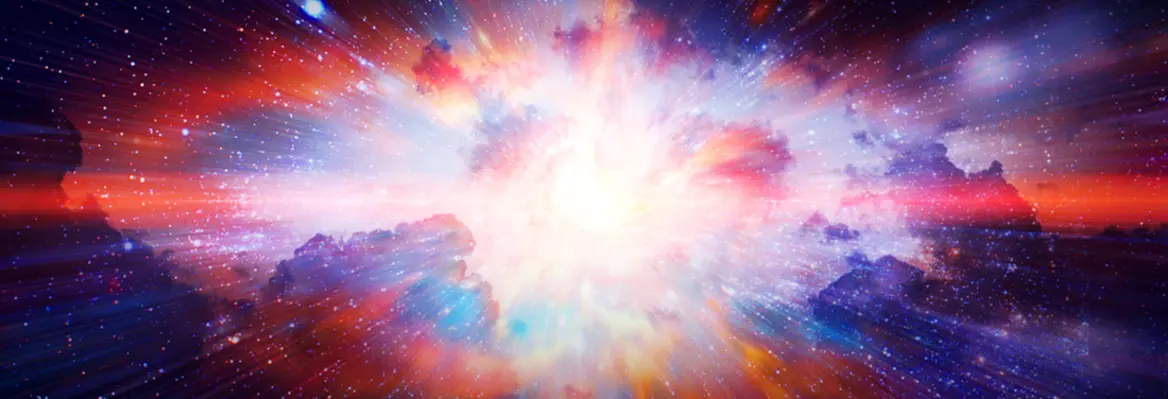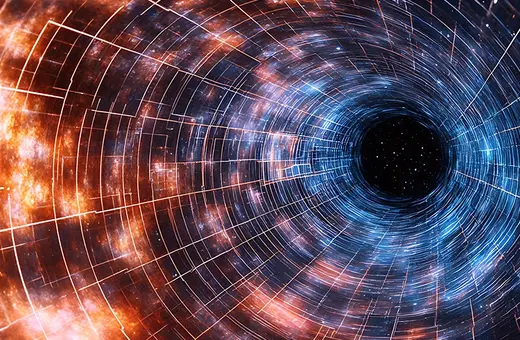We tend to think our scientific and cosmological theories are devoid of religious thinking. But it was actually a priest, George Lemaître, who originally proposed the Big Bang theory. In this extract from their new book, Battle of the Big Bang: The New Tales of Our Cosmic Origins, Niayesh Afshordi and Phil Halper argue that some of our cosmological models have taken on creation myth status and attract very religious styles of thinking in the scientific community.
The religion within cosmology
Looking back on my own past, my memories are filled with the imagery of my youth, from waking up to sounds of prayer calls at dawn to the terrifying encounter with the morality police at my college campus, when Ghazal and I were escorted to the security headquarters for the “crime” of speaking together in a classroom. This background may give me a rare perspective on the topic of science and religion. The first half of my life was lived under an Islamic theocracy, where religion was invoked to justify, quite literally, every aspect of public and private life. But the second half was driven by science, not because the Canadian and United States governments are guided by it (they aren’t), but rather because I left my home country in pursuit of science, to uncover the deepest and darkest mysteries of the cosmos.
___
Put differently, you can take the cosmologist out of religion, but can you take religion out of the cosmologist?
___
When I came to the United States for graduate school in 1999, I brought with me my religious upbringing, from kindergarten through high school and then college. While living religiously was the norm back home, keeping the faith as a stranger in a strange land did take its toll. Despite its bad reputation, the United States is actually very inclusive and welcoming to different cultures compared to where I came from, and so it didn’t take long for me to find people of common outlooks. With liberal presidents in power (Clinton in Washington, DC, and Khatami in Tehran), the US-Iran animosity of the 1980s, fueled by the Iranian Islamic revolution and the hostage crisis, was in apparent decline, and there was reason for optimism. But history has a way of repeating itself. Shortly after I arrived in Princeton, nineteen Muslim men (out of seven hundred million worldwide) hijacked US airliners and struck them against the Twin Towers and the Pentagon. Even though the 9/11 hijackers were from Saudi Arabia, UAE, Egypt, and Lebanon, four months later, George W. Bush would declare Iran, Iraq, and North Korea to be an axis of evil that needed to be defeated to right all the wrongs of the world. For me, a faith that used to be a source of comfort, connection, and community had suddenly become a liability.
But this is a book about the Big Bang, where brave (some may say strongheaded) cosmologists take what they learn in particle accelerators on Earth, and from galaxies in distant corners of the cosmos, to infer what happened 13.8 billion years ago, at crushing densities and unbelievable temperatures we have never seen before. In the same way that the Big Bang, as a physical process, is informed by our knowledge of physics, our approach to the science of Big Bang is a human process and thus informed by our understanding of humanity. Put differently, you can take the cosmologist out of religion, but can you take religion out of the cosmologist?





















Join the conversation